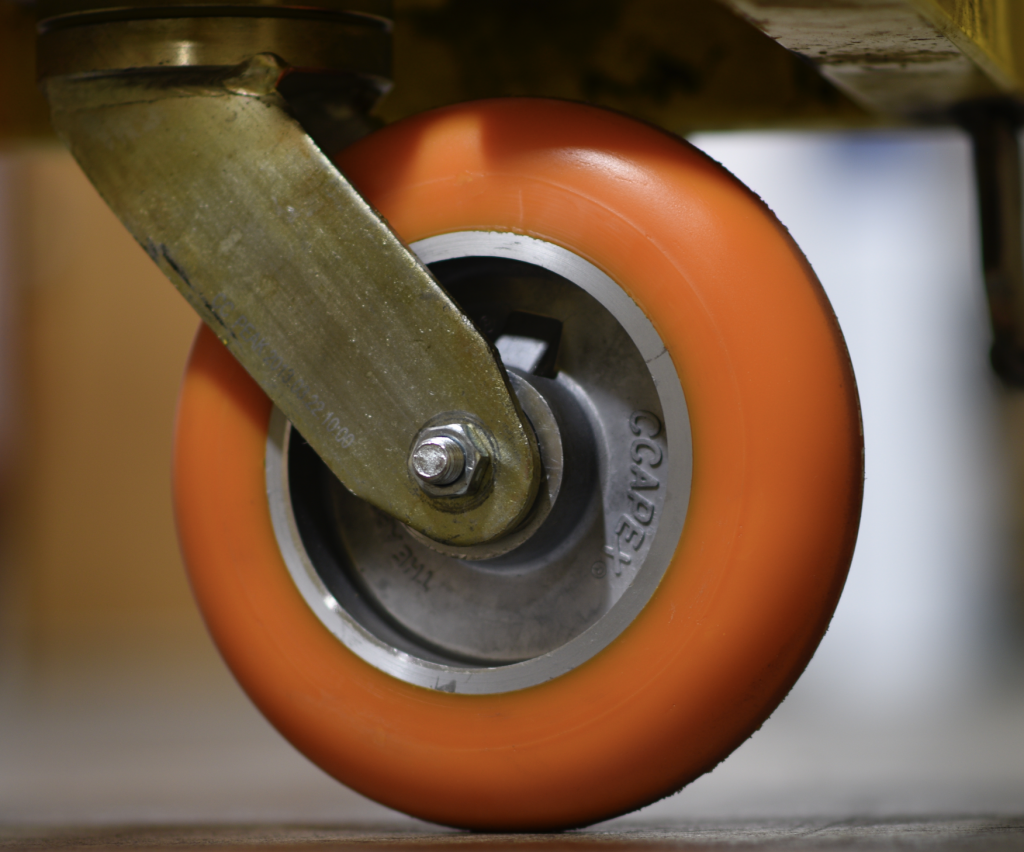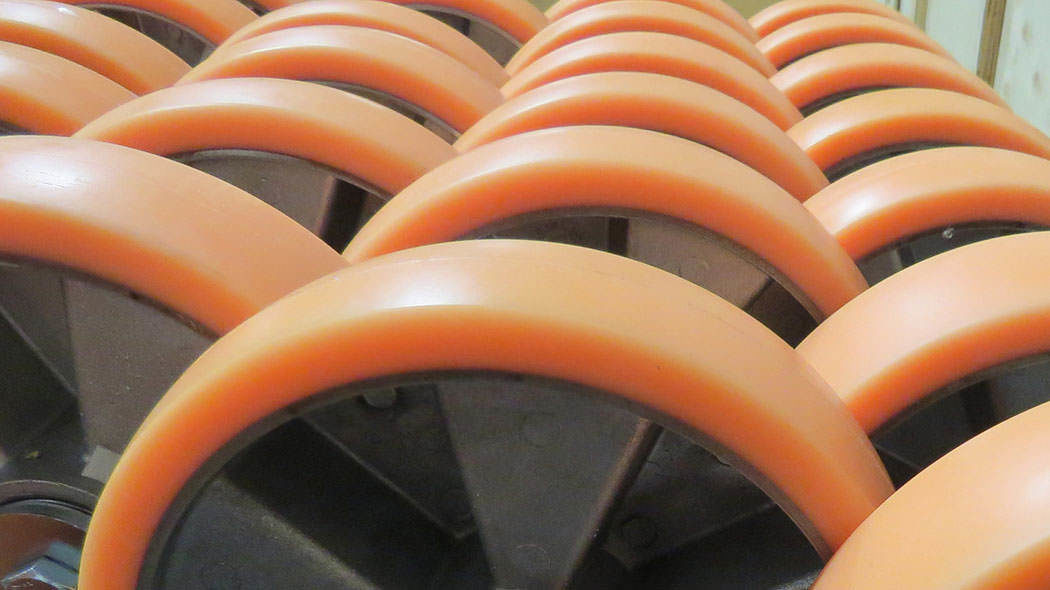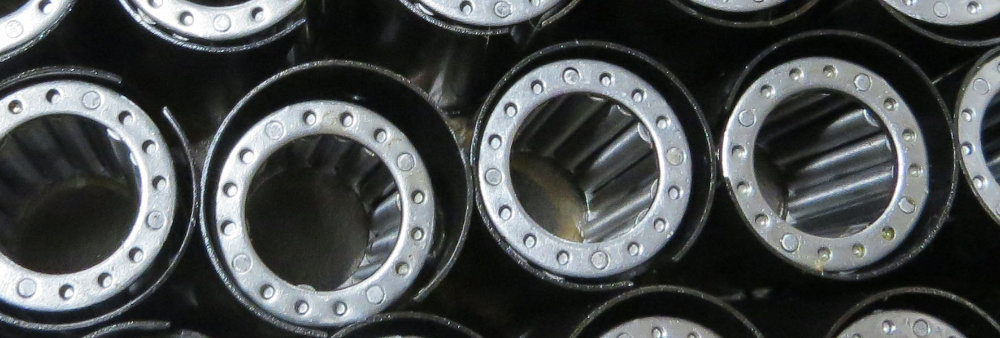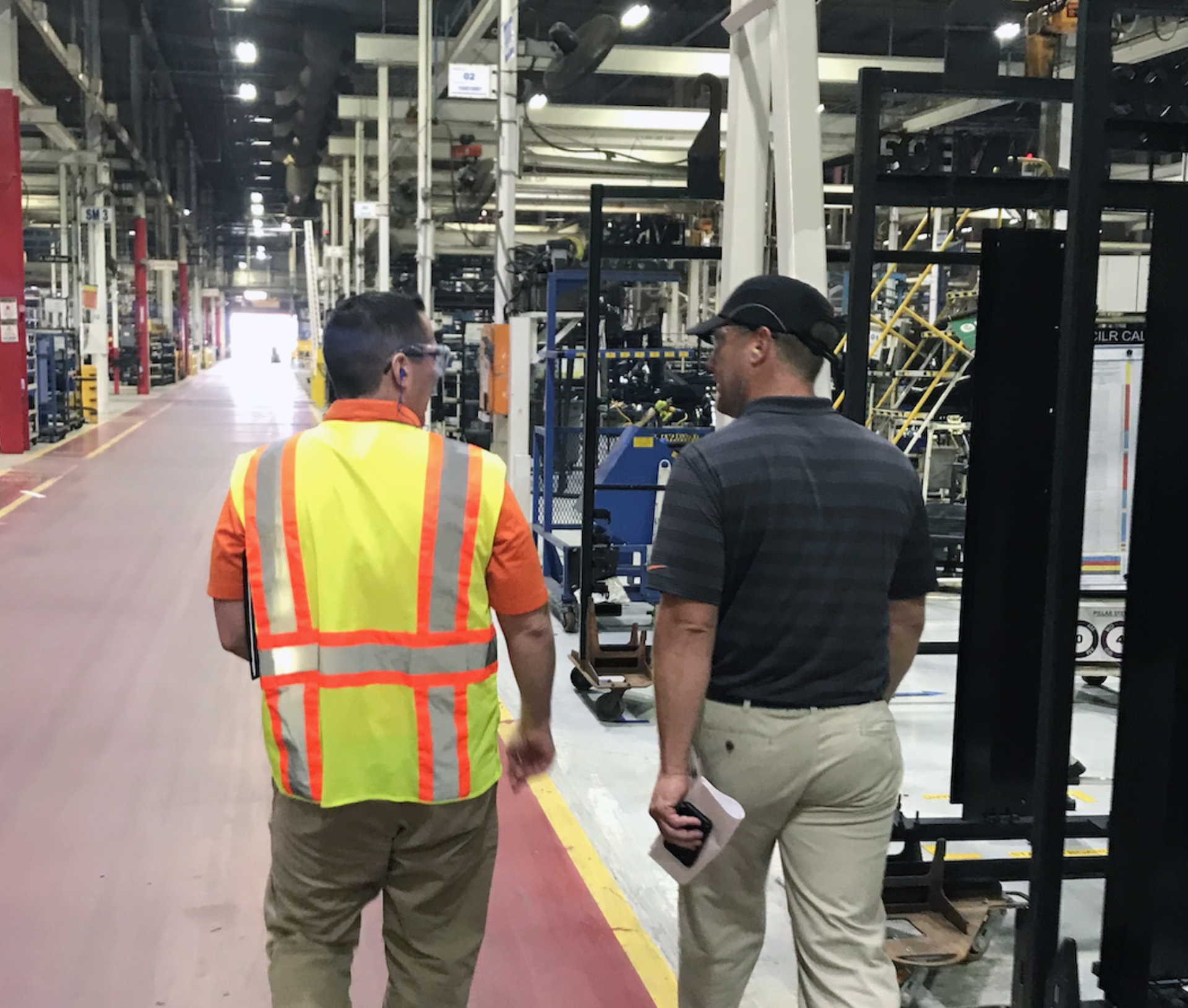1) LOAD RATING ("THE RULE OF 3") IN TOWLINES
Our clients need to know precisely how much weight each caster can hold. We rate each of our casters and conveniently post the ratings per caster in our catalog and online, which are all rated a 3mph, or “walking speed.” However, speed plays a huge role in towlines because the load capacity of your casters decreases, the faster the cart moves. The load rating decreases due to the heat build-up with the increased speed and the revolutions per minute.
Your cart may also use only 3 wheels on uneven surfaces at various times during transport. For these reasons, we use the “rule of 3” to calculate your load capacity. The rule of 3 says that when you calculate initial weight capacity, you only calculate weight capacity for 3 of your wheels, not 4 because we need to build in a safety factor due to uneven floors, inclines, and declines. This is a fast way of calculating required load capacity per caster. Here is the basic formula, but see in section 2 for the effect of speed on load rating.
C = (L+W) ÷ 3
C = Required Load Capacity of Each Caster
L = Maximum Cart Load
W = Cart Weight
For example, consider a 300-pound cart with an 1,800-pound load on it. This would be a 2,100 lbs. divided by 3. Each caster would have to support/be rated for 700 pounds or more for this load.
700 = (1,800 + 300) ÷ 3










